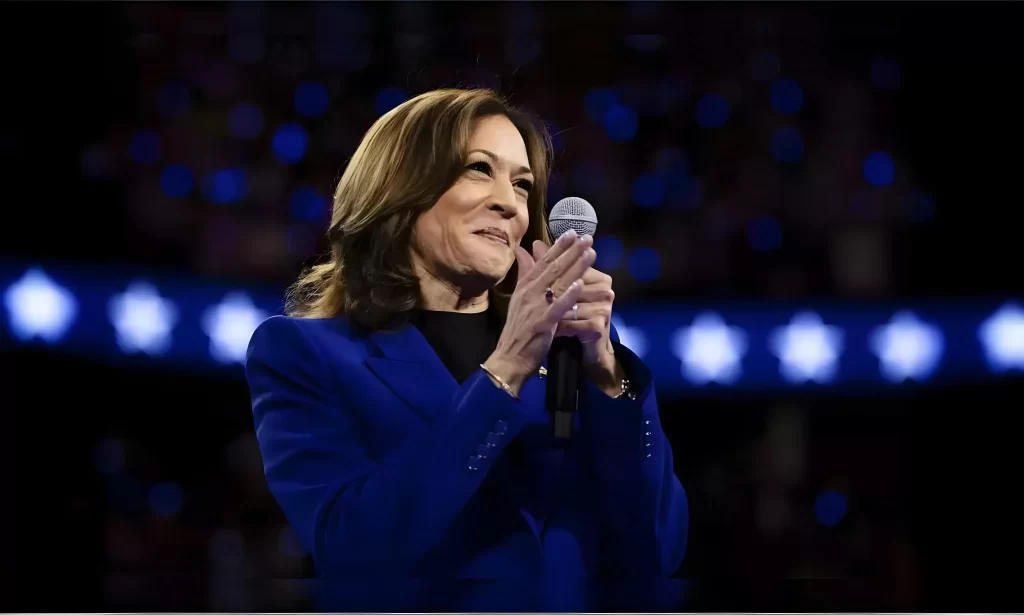As the US presidential election approaches on November 5, 2024, the potential impact of Kamala Harris’s presidency on US-India relations is a hot topic. Harris, the current Vice President, has deep roots in India, being born to a mother from Tamil Nadu, and her connection to the country is expected to play a significant role in her foreign policy decisions.
Analysts believe that while her administration may continue the Biden administration’s strategic policies, it could also introduce new dynamics in the bilateral relationship, particularly regarding economic ties and diplomatic challenges.
Kamala’s Indian Heritage
One of the most discussed facets of a potential Harris presidency is her Indian heritage. Although she frequently emphasizes her roots, her political ideology has been significantly influenced by her African American background. Harris’s childhood visits to India and her familial ties provide a cultural context that could inform her presidency. However, her actual engagement with India’s domestic and international challenges has been limited. While her heritage may inspire a more empathetic approach towards India, her tenure as Vice President has not prominently featured India on the agenda.
Strengthening Strategic Partnerships
The Biden administration has made significant strides in strengthening strategic ties with India, particularly through the Quadrilateral Security Dialogue (QUAD), which focuses on the Indo-Pacific region—a move implicitly directed at China. If Harris ascends to the presidency, it is anticipated that she will continue this strategic alignment. Her foreign policy is likely to echo that of Biden, with an emphasis on multilateralism and forming alliances to counter global threats from nations like China and Russia.
Despite this continuity, Harris’s administration may encounter complexities regarding India’s historical relationship with Russia, especially amid the ongoing geopolitical issues stemming from the Ukraine conflict. The US has been critical of Russia’s actions, while India has maintained a neutral stance due to its longstanding defense and energy ties with Moscow. Nevertheless, Harris is expected to uphold Biden’s commitment to deepening defense cooperation with India, which includes facilitating access to US military technology and hardware—an effort aimed at enhancing India’s security through technology transfers and joint military exercises.
Economic Dynamics
On the economic front, a Harris presidency is likely to maintain the course set by Biden, who focused on resolving trade disputes and bolstering economic relations. Harris is anticipated to adopt a more favorable stance toward trade with India compared to her Republican counterpart, Donald Trump, whose administration imposed tariffs and favored transactional policies. Harris is expected to promote strong economic ties with India, particularly in technology, energy, and pharmaceuticals. Her approach may also lead to increased H-1B visa approvals for Indian professionals, reversing the declines experienced during the Trump era.
Navigating Diplomatic Challenges
Despite the prospects for enhanced relations, Harris’s presidency may introduce diplomatic hurdles, particularly concerning human rights issues championed by the Democratic Party. Her previous comments on Kashmir have drawn criticism for being more aligned with political ideology than a comprehensive understanding of India’s complexities. Shalabh Shalli Kumar, a prominent US industrialist and founder of the Republican Hindu Coalition, criticized her views, labeling them as “anti-Indian” despite her Indian heritage. Kumar stated that her focus on “so-called minority issues” could lead to tensions between the two nations, highlighting that every opportunity would be taken to discuss perceived injustices under Prime Minister Modi’s leadership.
The ‘Desi President’ Factor
Nonetheless, Harris’s ties to the vast Indian diaspora in the US could foster stronger connections, particularly in cultural diplomacy and people-to-people exchanges. The Indian-American community is one of the fastest-growing ethnic groups in the United States, and Harris’s background may further strengthen the relationship between the two nations. Congressman Raja Krishnamoorthi emphasized that having a “Desi President” would enhance US-India relations due to Harris’s connections to India. He noted the tight race ahead, stating, “We’re going to be looking at six or seven states very closely on election night,” and expressed confidence in Harris’s chances of victory.
In contrast, Krishnamoorthi discussed how a second Trump administration would likely revert to a transactional foreign policy, complicating relations with India over trade and strategic priorities. As election day approaches, the potential implications of a Kamala Harris presidency on US-India ties remain a focal point for analysts and voters alike. With a combination of cultural connections and political challenges, the path forward for these two nations could be profoundly influenced by Harris’s ascent to the presidency.Kamala Harris

